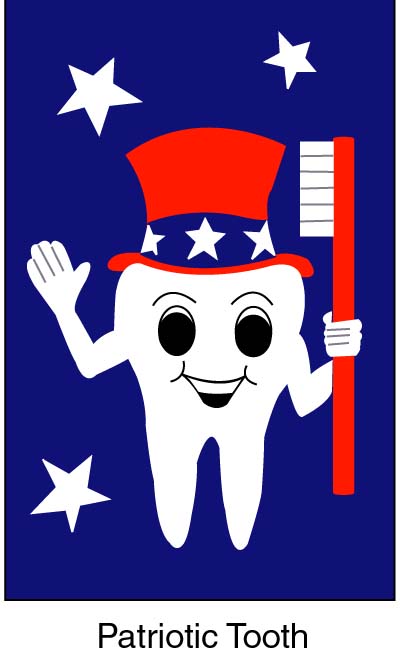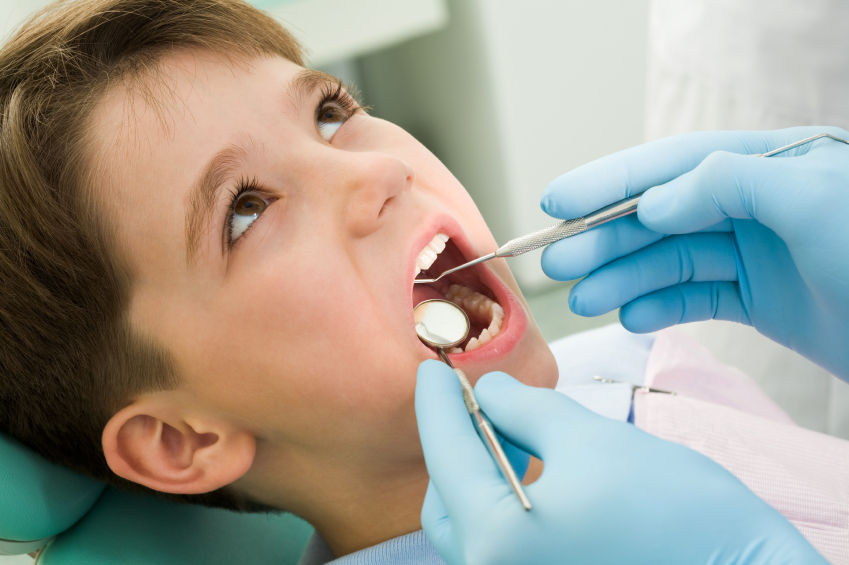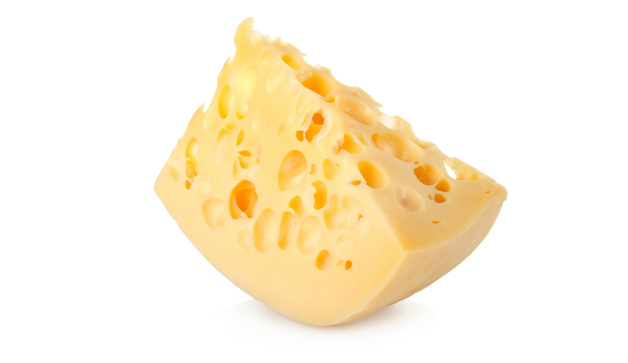At Atlanta Pediatric Dental Specialists, we love to watch our patients as they grow. A child's first loose tooth brings such excitement and anticipation to all. Sometimes, we get calls from worried parents because their child has suddenly developed a double row of teeth. It may look odd, but it isn’t a dental emergency. The technical term is ectopic eruption, but we often refer to these teeth as "shark teeth" in the office!
Ectopic eruption happens when the lower baby teeth haven’t fallen out yet, but the permanent teeth erupt anyway. It’s a fairly common occurrence, affecting approximately one in 10 children.
Most of the time, an ectopic eruption will resolve on its own, without intervention. The baby tooth eventually falls out and the tongue will push the permanent tooth forward into proper position. Dr. Krieger and generally tell patients “If the baby tooth is floppy, loose and not causing discomfort, encourage the child to have the satisfaction of wiggling the tooth out on their own. If the baby tooth is held in solidly, or causing discomfort—or it has been longer than a couple weeks without change it's time for the dentist to help the baby tooth out.
At Atlanta Pediatric Dental Specialists, we make every effort to ease your child's anxiety about the dentist. Dr. Krieger's staff are trained to work with our little patients and create a great experience at the dentist. Studies have shown parents anxietes about the dentist often transfer to their children. Read this article below about tips to ease kids' fears of the dentist:

http://www.nj.com/helpinghands/deltadental/index.ssf/2015/06/tips_to_ease_kids_fear_of_the.html
From all of us at Atlanta Pediatric Dental Specialists, we wish you and your family a happy 4th of July!!

The American Academy of Pediatric Dentistry (AAPD) created a 60 second video to highlight the importance of taking your child to see a pediatric dentist.

Dr. Krieger hear the question all the time "why fix a baby tooth if it is just going to fall out?" At Atlanta Pediatric Dental Specialists, we recognize the importance of baby teeth.

Baby teeth:
Untreated cavities in baby teeth can lead to toothaches, discomfort, missed days of school, and early loss of the affected baby tooth.
When a baby tooth is lost too early, the permanent tooth can drift into the empty space and make it difficult for other adult teeth to find room when it’s their turn to erupt. Choosing not to fix a baby tooth can lead to significant space loss and future othodontic care to regain space for a permanent tooth to erupt into the mouth.
Proper oral hygiene is important as soon as your baby is born. Establishing good oral habits early will go a long way.
One of the most rewarding part of our jobs at Atlanta Pediatric Dental Specialists is watching our patients grow up. Dr. Krieger love to follow our patients after they graduate from our practice and flourish. This past weekend, one of our patients, Ollie Schniederjans, played in the U.S. Open! Ollie went to Harrison High School and is a Georgia Tech Graduate. We are proud to see his smile!! Go Ollie!
http://golfweek.com/news/2015/jun/18/us-open-2015-ollie-schniederjans-georgia-tech/

At Atlanta Pediatric Dental Specialists, we encourage good dietary habits at each visit. Did you know cheese is beneficial for your child's teeth? Check out this great article:
http://www.prevention.com/health/health-concerns/study-dairy-prevents-cavities


What does this cute little animal have to do with teeth? At Atlanta Pediatric Dental Specialists, we have discovered a 'cool tool' to help floss with braces. It is called the platypus flosser. It is a flosser that has a flat end just like a platypus beak to help get floss under those pesky wires and makes flossing easier with braces. Dr. Krieger recommend The Platypus flosser to help keep their patients teeth clean with braces. Here are some helpful hints for flossing with braces:

http://www.platypusco.com/Platypus_Instructions.html
At Atlanta Pediatric Dental Specialists, Dr. Krieger encourage all of our patients to floss at least once a day to prevent cavities and maintain good ginigival health. Here are some tips on how to floss:
STEP 1: Wind about 18 inches of floss around your fingers as shown. Most of it should be wrapped around one finger, and as the floss is used, the other finger takes it up.

STEP 2: Use your thumbs and forefingers to guide about one inch of floss between your teeth.

STEP 3: Holding the floss tightly, gently saw the floss between your teeth. Then curve the floss into a C-shape against one tooth and gently slide it beneath your gums.

STEP 4: Slide the floss up and down, repeating for each tooth. Make sure to floss on both sides of every tooth.

